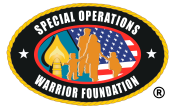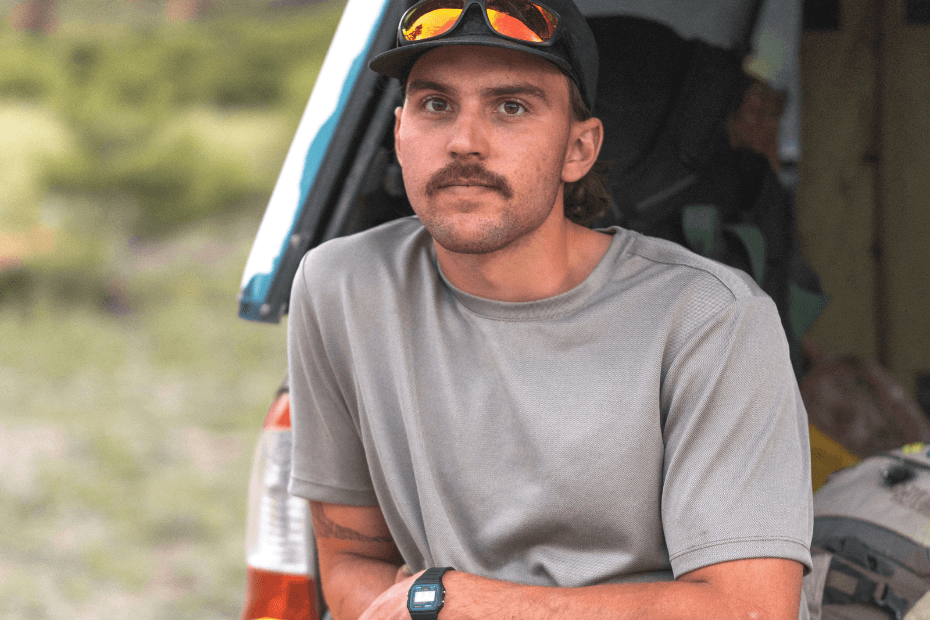On November 27, 2006, six-year-old Greyson Gilbert’s father, Air Force Major Troy “Trojan” Gilbert, lost his life while serving in Iraq. Troy served as part of the 309th Fighter Squadron from Luke Air Force Base in Arizona and was in Iraq in support of a Special Operations task force when he was killed. Greyson, now a Special Operations Warrior Foundation student, is currently a senior at Clemson University majoring in Health Science with a minor in Psychology. During his studies, Greyson received an eight-week internship at The Uniformed Services University of the Health Sciences in Bethesda, Maryland, where he learned how to incorporate his major into the actual field of studies. From August to December 2021, he studied abroad in Thailand. Entering his last semester at Clemson, Greyson was kind enough to join SOWF for a candid Q & A.
Q: You were six years old when your father was killed in the line of duty. What do you remember of your father before he was killed?
A: I was young, but thankfully I do have some memories with him. Most revolved around him having fun with us: driving in his old truck jamming to loud music; how he would come into my brother’s and my room at night to tuck us in and instead we’d end up on the floor in a heated wrestling match; or going out and kicking the soccer ball in the field near our house. As I grow older, I’m more and more impressed with how he was able to be so dedicated to his work, yet always keep his family first.
Q: What do you consider to be your father’s legacy, both as a father and as a man? What enduring values were important to him?
A: Anybody who knew him would say that he worked harder than most, but at the same time he truly cared for people. He made people feel known, and heard, and taken care of. That’s something that I really value, a trait that I want to embody as well.
Q: Going back to when your father lost his life… do you remember those emotions? Can you tell me what that was like for you at six years old?
A: I remember getting off the school bus and walking home with my brother like any other normal day. The one thing that has stuck with me is walking into the house and seeing my grandpa and my mom crying in the living room. I think that I thought that was strange. As a first grader, hearing news like that is hard to grasp. My primary concerns were lunch and recess—I mostly just wanted to keep living a normal life, not fully grasping how much my life was turning in that moment. The impact of that loss has been a slow, steady journey that’s forever ongoing.
Q: What has been the most challenging thing about the loss of your father throughout your life?
A: Naturally, Gold Star kids are the minority in most circles they are in. It was easy to feel a little alienated, growing up where most of my friends still have both of their parents. Feeling like you had no one who understood you or could truly relate to you—that was the hardest part growing up. Learning to be open was a challenge. Thankfully, I realized that even if people can’t fully understand your experience, they can still care about you and help if you let them.
Q: Do you remember when SOWF came into your life? What are your earliest memories of Special Operations Warrior Foundation?
A: If I remember correctly, I think SOWF came into my life very early on in my college journey, as we got connected through some friends who had also received college support from them. I remember two striking things from those early days — first, that even though my dad technically wasn’t Special Operations, he died in support of a Special Ops mission, and SOWF felt so strongly about helping because of that fact. My dad died saving Special Ops lives, and he, and by extension I, via SOWF, were welcomed like family. That was special. Secondly, I remember how it felt to get the message that I was fully covered, that anything I could ever need while in college was going to be helped with by SOWF. That was a supreme weight lifted off my shoulders — one less thing I need to worry about, and something that has honestly helped me focus on my education and outside interests!
Q: Aside from the education funding itself, what has been the most important thing that SOWF has contributed in your life?
A: Aside from funding itself, as I mentioned, the peace of mind is incredible. It leads me to feel a sort of gratitude that permeates the rest of my life. I am so grateful, and it makes me want to work harder and do everything I can to make the most of the opportunities that SOWF has given me, along with all others who have supported me over my life. In addition to such indirect effects of the financial support, like peace of mind, SOWF connected me to an incredible internship opportunity last summer and helped fund and support me with anything I needed to be successful there. They truly have not only invested in my education, but also my passions, career goals, and individual interests — whether it be internship, study abroad, support for outside certifications to advance my career goals, travel, and technology costs, etc., the personal guidance, and the network that they have invited me into, have no doubt equipped me to take advantage of future life opportunities.
Q: Tell us about your future plans and what you’d like to do now with your career.
A: I am graduating with a B.S. in Health Science in May of 2022. I would like to pursue postgraduate education in the field of Exercise Physiology & Sports Performance and use my knowledge in fitness and health to help people in some capacity. I am currently a coach to a few athletes, and I just obtained my personal trainer certification (thanks to SOWF). I particularly am interested in coaching, and research opportunities, related to human performance. I plan to pursue more opportunities to coach and direct athletes, whether professional, collegiate, or amateur; servicemembers or civilian; adults or children. Mostly, I want to help people who have health or fitness goals achieve those goals, whatever they are. My dream is to own and operate my own training facility one day.
Q: You studied in Thailand with the support of SOWF. Can you tell us what that experience has done for you?
A: Oh man, my time in Thailand did more for me than I could probably ever effectively communicate. The biggest things I learned from living and studying in Chiang Mai, Thailand, for a semester are probably these:
I learned a lot about adapting to new or uncomfortable settings. Thailand is different from America in so many ways. I’ve had to learn how to adapt my whole life, from growing up in the military and moving all over, to losing my dad, and everything since. I learned to embrace change for growth, from an early age. Thailand cemented this concept for me —that change, although often difficult, is often immensely rewarding in ways you can’t imagine. The things I learned about language and communication, about people from very different backgrounds who have become lifelong friends, and about health. It fostered in me an intense appreciation for diversity, and for openness to new experience. Thailand taught me about living in the present moment and being mindful. I learned to meditate, and its benefits, which have helped me deal with anxiety, depression, stress, identity, and life in general. I learned about different global perspectives on health and learned to find commonalities with people and cultures different from my own. These just scratch the surface of the things I’ve taken from my time in Thailand. I am grateful.
Q: There will be other young boys whose fathers will be killed in action. What is one thing you would like for them to know, knowing what you know and having been through what you have been through?
A: Unfortunately, that’s true. No one should have to go through that pain — experiencing sudden loss and trauma like that, and then not having a father to turn to for advice, guidance, celebration, etc. as one grows older. I would tell them this: don’t turn away from such loss, such pain. It hurts. It’s hard. It’s often more comfortable to avoid talking about your experience, to avoid confronting that pain. But it’s worth it — instead of avoiding pain associated with loss, instead of avoiding grief, sadness — turn toward it. Be honest with yourself. Grieve and cry if that’s what you need. Release. Once I learned that it was okay to feel those things and be honest with myself about how I felt, it was freeing. And then, go out and chase your wildest dreams.


